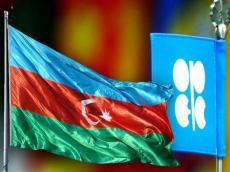|
|
TODAY.AZ / Business
Azerbaijan's oil production trends amidst global market shifts [ANALYSIS]
11 July 2024 [13:05] - TODAY.AZ

By Zara Araz
The recent report from the Organization of the Petroleum Exporting Countries (OPEC) highlighting Azerbaijan's crude oil production figures for June has sparked interest and scrutiny in the global energy market. Azerbaijan, a significant oil-producing nation in the Caspian region, has shown consistent production levels over recent months, indicating stability amidst dynamic global oil market conditions.
According to OPEC's latest monthly report, Azerbaijan's average daily crude oil production reached 479 thousand barrels in June 2024. This marks a slight increase from the 466,000 barrels produced in May and mirrors the production level of April, indicating a stable output trend over the past quarter.
The quarterly data provided by OPEC underscores Azerbaijan's steady oil production performance. In the first quarter of the year, the country averaged 477,000 barrels per day, with a marginal dip to 475,000 barrels per day in the second quarter. This consistent production level suggests operational efficiency and adherence to national production targets amid global market fluctuations.
Azerbaijan's oil production figures are crucial within the broader context of global oil dynamics. The stability in production levels is noteworthy amidst global uncertainties such as geopolitical tensions, fluctuating demand due to economic recovery post-pandemic, and adjustments in OPEC+ production quotas. Azerbaijan's ability to maintain stable production contributes to market equilibrium and influences global oil prices.
For Azerbaijan, maintaining stable oil production is not only about meeting global demand but also about optimizing revenue streams and supporting economic growth. The country's strategic location and infrastructure investments in the energy sector position it as a key player in regional energy security and global oil supply chains.
Looking forward, Azerbaijan faces both challenges and opportunities in its oil production sector. Challenges include navigating geopolitical tensions that could impact production stability and responding to global energy transition trends toward cleaner fuels. However, opportunities lie in leveraging technological advancements in oil extraction and exploring new markets for its crude oil exports.
In conclusion, Azerbaijan's consistent oil production levels as reported by OPEC underscore its resilience and strategic importance in the global energy landscape. As the country continues to navigate through evolving market dynamics, maintaining stable production remains crucial for ensuring economic stability and contributing to global energy security.
Policymakers in Azerbaijan should continue to focus on enhancing operational efficiency, investing in sustainable energy practices, and diversifying the economy away from oil dependency. These efforts will not only strengthen Azerbaijan's position in the global energy market but also ensure long-term economic resilience and prosperity.
By closely monitoring production trends and adapting to global energy shifts, Azerbaijan can effectively navigate the complexities of the modern oil market while maximizing the benefits of its valuable natural resources.
URL: http://www.today.az/news/business/250523.html
 Print version
Print version
Connect with us. Get latest news and updates.
See Also
- 07 April 2025 [13:43]
Czech Ambassador emphasizes practical approaches to sustainable development at Baku Event - 07 April 2025 [13:18]
Ambassador Torma: Azerbaijan plays a key role in Europe's energy security and green transition - 07 April 2025 [12:15]
Feasibility study for Azerbaijan-Turkiye Green Energy Corridor officially launched - 07 April 2025 [11:13]
Baku hosts event on renewable energy and emission reduction - 07 April 2025 [10:53]
Azerbaijan aims to lead Eurasia’s green energy transition and energy connectivity - 05 April 2025 [10:30]
Uzbekistan, Azerbaijan forge strategic tourism partnership - 04 April 2025 [15:27]
Turkiye reaffirms commitment to regional cooperation and green energy - 04 April 2025 [15:17]
Minister Junghietu highlights Moldova’s commitment to Southern Gas Corridor and renewable future - 04 April 2025 [14:41]
Kazakhstan, Uzbekistan, and Azerbaijan launch green energy project to Europe - 04 April 2025 [14:16]
AI integration planned for ASAN Service centers by 2026
Most Popular
 Macron's fears are starting to come true
Macron's fears are starting to come true
 China deeply regrets, rejects Fitch Ratings downgrade
China deeply regrets, rejects Fitch Ratings downgrade
 Uzbekistan, Azerbaijan forge strategic tourism partnership
Uzbekistan, Azerbaijan forge strategic tourism partnership
 N. Korean leader inspects special operation units' training on day of Yoon's ouster
N. Korean leader inspects special operation units' training on day of Yoon's ouster
 Pakistan, US agree to deepen energy ties
Pakistan, US agree to deepen energy ties
 Relocation to Suqovushan village begins: 53 families to move
Relocation to Suqovushan village begins: 53 families to move
 Future supernova of first type find near Solar System for first time
Future supernova of first type find near Solar System for first time
